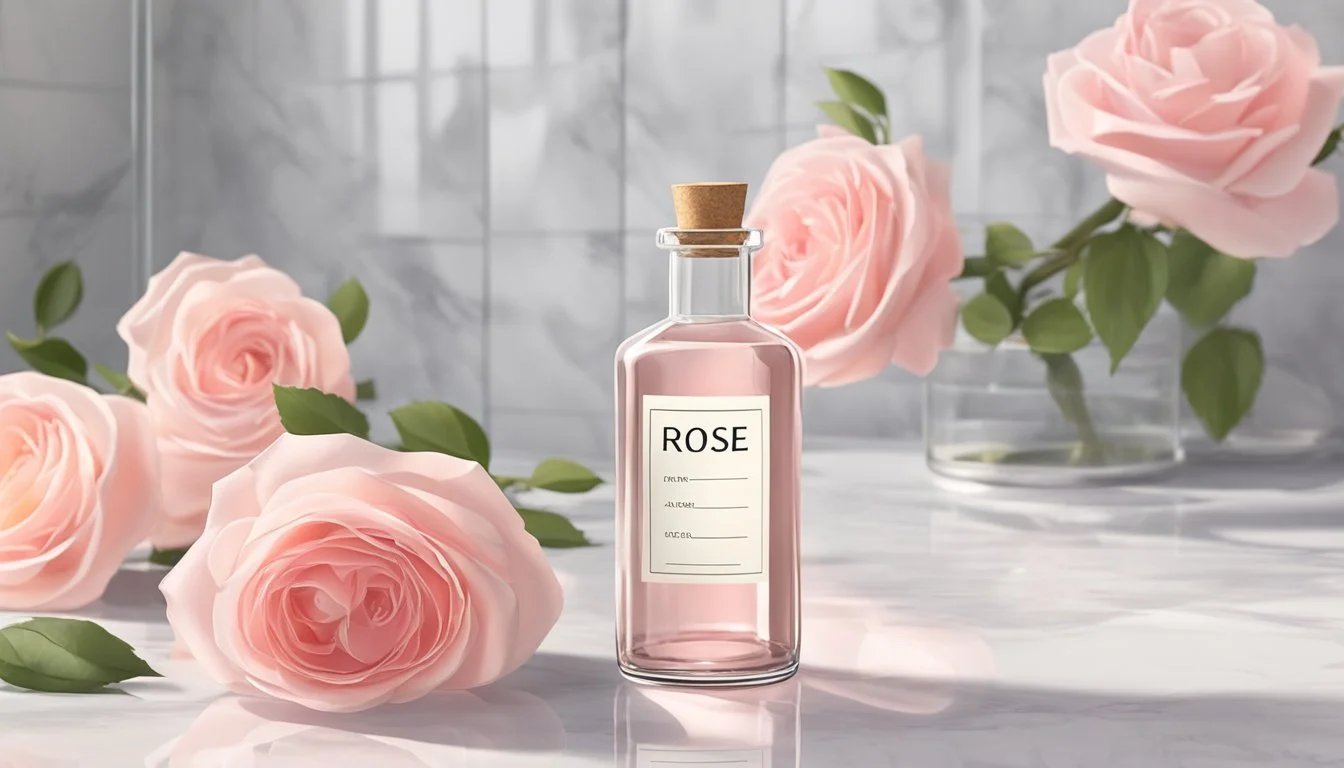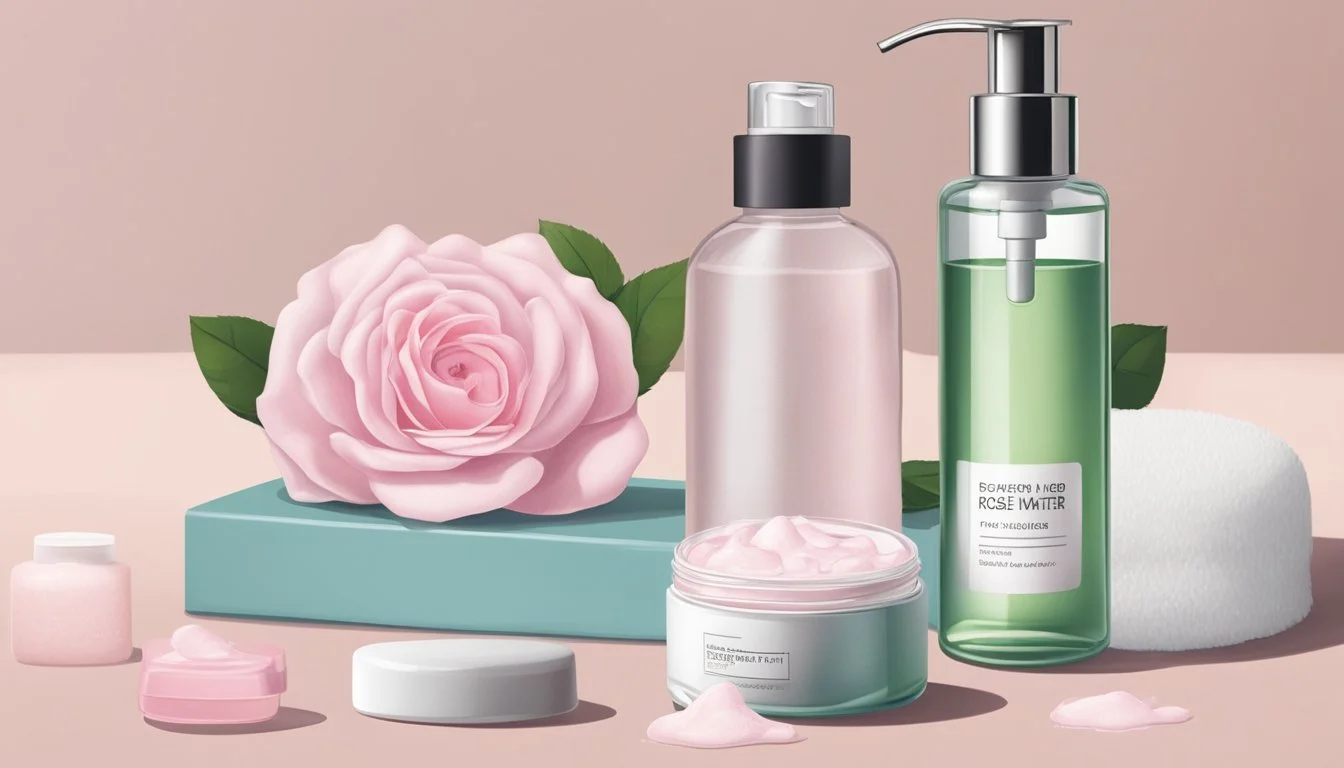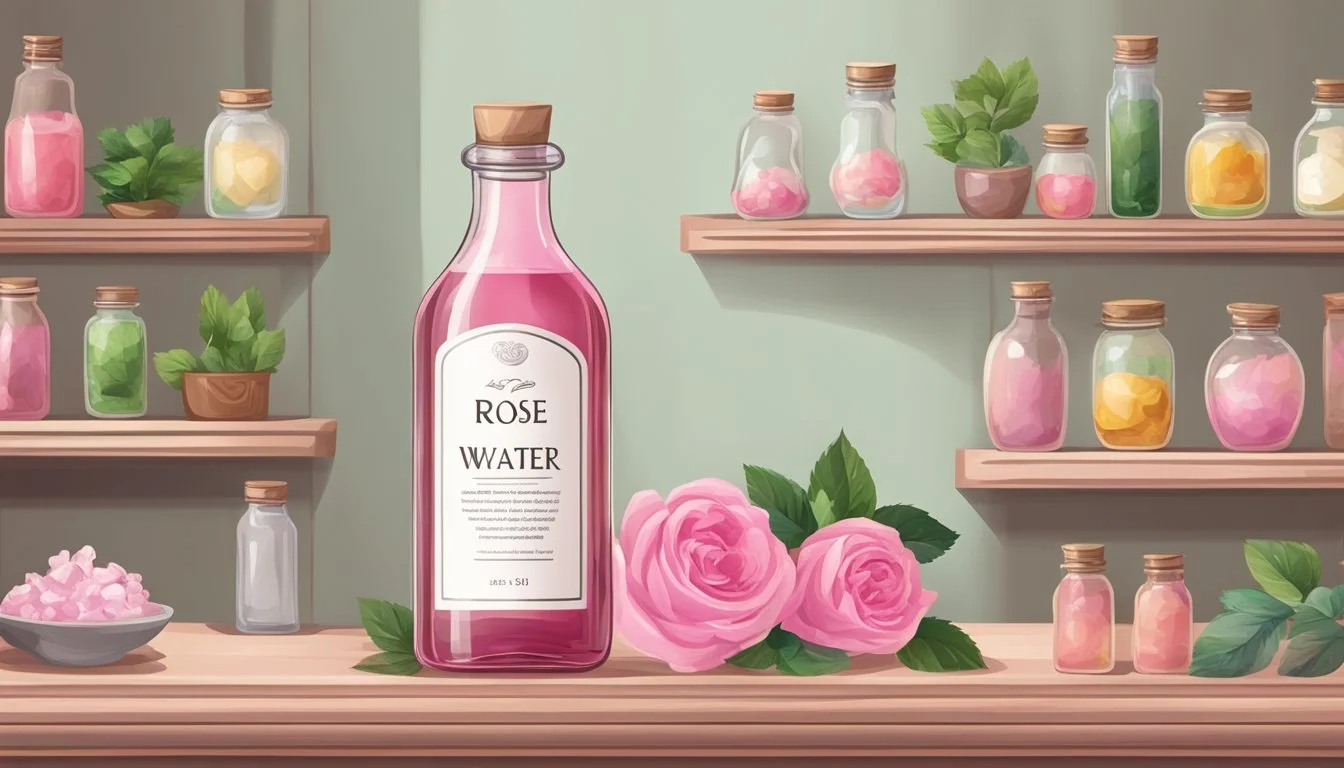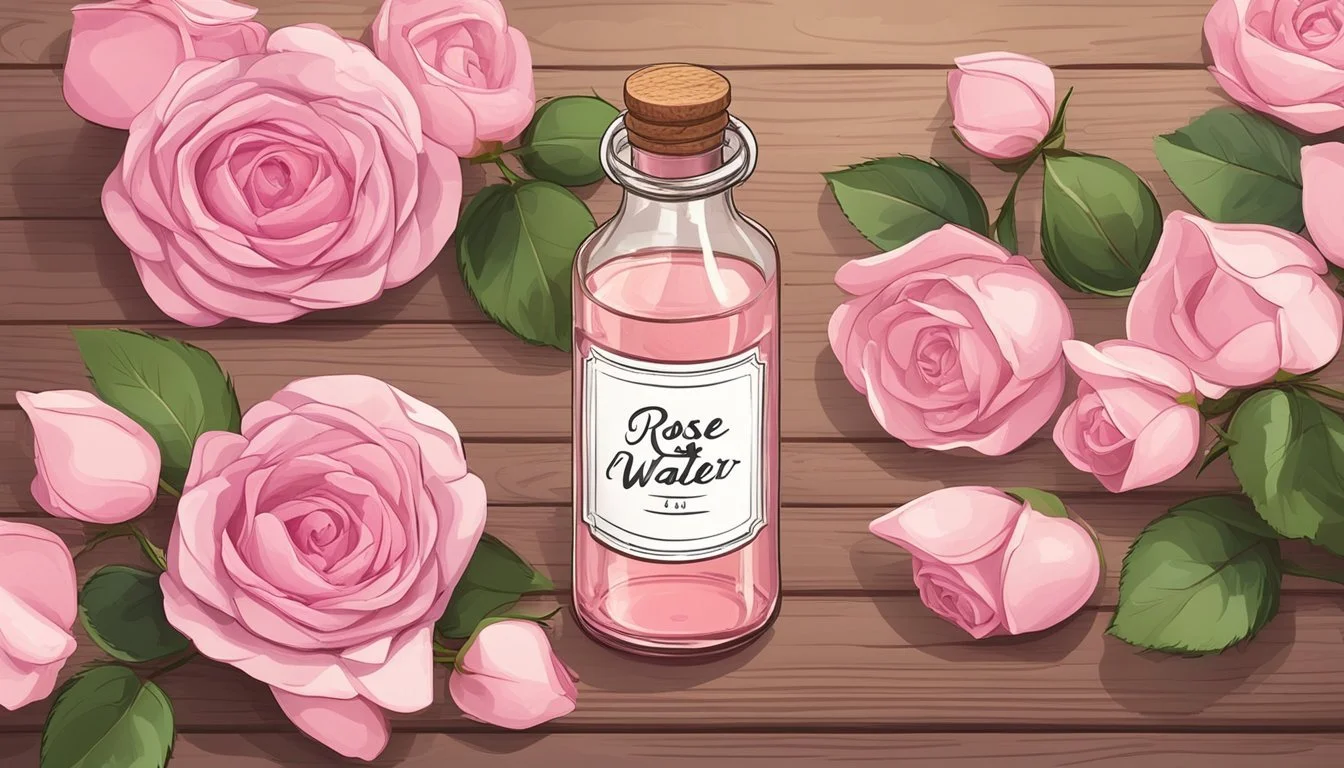How Long Does Rose Water Last?
Understanding Shelf Life and Storage Tips
Rose water, a fragrant liquid derived from steeping rose petals in water, is a product celebrated for its beauty benefits and culinary uses. It is lauded for its gentle toning and hydrating properties on the skin, as well as its subtle floral flavor in food and drink. Consumers often wonder about the shelf life of this delicately scented water and how to properly store it to maintain its quality.
The longevity of rose water depends on several factors, including its formulation, packaging, and storage conditions. When properly stored in a cool, dark place, commercially prepared rose water can last up to two years. However, the shelf life can vary, with some products expiring sooner. It is essential to note changes in the rose water's aroma, color, and clarity as indicators of its freshness.
For homemade rose water, which generally lacks the preservatives found in store-bought versions, the shelf life is significantly reduced. It is advisable to use homemade rose water within a week if stored at room temperature, or extend its use for up to a month when refrigerated. Users should exercise caution and look for signs of spoilage, such as off-odors or cloudiness, before applying rose water topically or ingesting it.
Understanding Rose Water
Rose water is a versatile liquid with applications ranging from culinary to cosmetics, made from the essence of roses. It is cherished for its delicate fragrance and potential health benefits.
Composition and Properties
Rose water is primarily composed of water and the essential oils of roses. These essential oils are responsible for the distinctive fragrance of rose water, which can be used in perfumes, skincare products, and aromatherapy. The typical pH of rose water is slightly acidic, mirroring that of the skin, which is why it's often used in beauty products. It also contains various chemicals and antioxidants that contribute to its soothing properties and shelf life.
Production Methods
The most common production method for rose water is the distillation process. This involves the simmering of rose petals in water and capturing their essential oil as vapor cools back into a liquid. This distillation can be conducted on an industrial scale for store-bought rose water or on a smaller scale for homemade versions. The process may vary, affecting the final color, scent, and quality of the rose water.
Types of Rose Water
Rose water comes in different variants, often influenced by the method of production and the type of roses used. Organic rose water is made from organically grown roses without synthetic chemicals. There are also differences between homemade and store-bought rose water in terms of shelf life and purity. Brands often add preservatives to extend the shelf life, which may not be present in homemade products. The color and scent of rose water can vary by product and brand, which is typically an indication of quality and purity.
Benefits and Uses
Rose water is renowned for its versatile benefits and uses, ranging from skincare enhancements to culinary applications, and even for its therapeutic properties. Here are the key areas where rose water plays a pivotal role.
Skincare and Aromatherapy
In skincare, rose water is widely used as a facial toner, helping to maintain the skin's pH balance and control excess oil. Its anti-inflammatory properties make it beneficial for reducing skin redness, acne, eczema, and rosacea. Its antioxidant effects can help to rejuvenate skin tissue. In aromatherapy, the soothing aroma of rose water is utilized for stress relief and promotes a sense of wellbeing.
Uses in Skincare:
Facial toner for balancing skin
Reduces acne and skin irritation
Aids in reducing eczema and rosacea symptoms
Aromatherapy Applications:
Stress relief through its calming scent
Used in beauty products for its sensory benefits
Culinary and Beverage Applications
Rose water is incorporated in numerous food recipes and drink concoctions to impart a subtle floral flavor. It is often a key ingredient in traditional Middle Eastern desserts and is gaining popularity in modern cooking and cocktail recipes. Its delicate essence is valued in enhancing both the scent and taste of various dishes.
Food Applications:
Adds floral notes to desserts and pastries
Utilized in savory dishes for a unique flavor profile
Drink Enhancements:
Infused into cocktails for an elegant twist
Mixed into teas and other beverages for an aromatic experience
Health and Healing
For health, rose water exhibits soothing properties that can aid in healing wounds and cuts due to its antiseptic and antibacterial effects. It is also sometimes used in homemade remedies for headaches and to prevent the growth of mold.
Therapeutic Uses:
Assists in the healing of cuts and wounds
Antimicrobial properties help prevent mold
Used in treatments for soothing headaches
Storing Rose Water
The longevity and purity of rose water strongly depend on storage conditions which include temperature control and the prevention of contamination.
Proper Storage Conditions
To maintain the quality of rose water, it should be stored in a cool, dark place away from direct sunlight and heat sources. The ideal storage temperature is usually below room temperature, but not as low as freezing. An airtight container is essential to prevent contamination and oxidation from the air. If the rose water contains preservatives, this can help extend its shelf life under proper storage conditions.
Shelf Life and Expiration
Store-bought Rose Water: Typically 1-2 years from the opening date.
Homemade Rose Water (Simmering Process): Up to 2 weeks.
Refrigerated Homemade Rose Water: 1-4 months.
These time frames can vary based on the presence of preservatives, the method of preparation, and exact storage environments. It's important to note the expiration date if available and to keep homemade rose water refrigerated to maximize shelf life.
Signs of Spoilage
The appearance, smell, and color of rose water can indicate spoilage:
Color: Changes to a milky or brown hue can signal expiration.
Smell: A dramatic change or loss of the floral fragrance is a sign the rose water has gone bad.
Appearance: The presence of mold or particles might be visible.
Rose water that shows any of these spoilage signs should not be used and promptly discarded.
Identifying and Preventing Decay
When assessing the longevity and quality of rose water, it is crucial to identify signs of decay and take measures to prevent it. Proper handling and storage are key in preserving both the potency and safety of the product.
Bacterial Contamination
Bacteria can thrive in moist environments and may contaminate rose water if not stored correctly. Harmful bacteria cause deterioration and reduce the product's safety. To test for bacterial growth, a laboratory analysis is required, which looks for unexpected changes in pH levels or the presence of bacterial colonies.
Precautions and Preservation
Preventing decay involves minimizing the factors that contribute to rose water degradation. Rose water should be stored in a cool, dark place, ideally in a tightly sealed container to prevent exposure to air and light. Additives like alcohol may be included in the formulation to extend shelf life and inhibit bacterial growth. Here are key steps to preserve rose water:
Keep it refrigerated: Ideally between 35-45°F (2-7°C).
Seal tightly: Use air-tight containers to limit oxidization.
Add preservatives: In commercial products, safe preservatives can extend longevity.
Visual and Olfactory Tests
Visual and olfactory assessments offer quick, practical ways to test for potential decay. One should look for any discoloration or cloudiness, which may indicate spoilage. The rose water's smell is also a telltale sign; any stark change from its original soft, floral scent to something sour or unpleasant suggests that it is no longer potent and may be unsafe for use.
DIY Rose Water
Creating rose water at home provides a customizable and natural product suitable for various uses. This section breaks down the steps needed to source ingredients, utilize distillation methods, and offers tips for the storage and proper usage of your homemade rose water.
Selecting the Best Ingredients
Quality Roses: The selection of rose petals is crucial. One should opt for organic roses to avoid pesticides, prioritizing petals from a florist or grocer known for their natural and high-quality products. Fresh petals are preferable, as they preserve more essential oils and fragrance.
Essential Materials: To begin, gather the following:
Fresh or dried rose petals (1 cup fresh/ 1/2 cup dried)
Distilled water (enough to cover the petals in the saucepan)
Home Distillation Techniques
Saucepan Method: A common DIY technique involves simmering rose petals in water.
Place the fresh petals in a saucepan and cover with distilled water.
Heat the mixture until it boils, then reduce to a simmer, allowing the essence to infuse into the water without evaporating too much liquid.
After simmering, strain the mixture, collecting the rose water in a bowl.
Alternatively, some may use an actual distillation process, which can extend the shelf life of rose water up to six months.
Storage and Usage Tips
Preservation: Homemade rose water should be stored in a cool, dark place. It is best to use glass containers to preserve its quality and extend its shelf life. Refrigeration can be an additional step to prolong its freshness, with the following general guidelines:
Simmered rose water: lasts up to two weeks.
Distilled rose water: may last up to six months.
Usage: Homemade rose water is versatile and can be used for skincare, hair care, aromatherapy, or even culinary purposes. Always ensure the final product is free from any particles and properly diluted if used directly on the skin.
Commercial Rose Water
Commercial rose water is widely available and varies considerably depending on factors such as brand quality, price, and usage in different applications like beauty and cooking. Consumers value it for its scent and the subtle touch it adds to skincare and aromatherapy.
Quality and Brand Evaluations
When assessing commercial rose water, one primarily examines the brand's commitment to quality. Ingredients are a key focus, with some brands ensuring a pure, organic composition, enhancing the potency and natural scent of the product. An evaluation of top-rated brands suggests a direct correlation between brand reputation and the quality of rose water they produce.
Price and Availability
Commercial rose water is generally accessible both online and in physical stores, ranging in price from affordable to premium rates. The cost often reflects the product's purity and brand prestige. Here is an illustration:
Brand Price Range Availability Brand A $$ - Affordable Supermarkets, Online Brand B $$ - Mid-range Beauty Stores, Online Brand C $$$ - Premium Specialty Stores, Online
Note: Prices are illustrative and can vary.
Practical Applications
Rose water's practical applications span across various domains:
Skincare: Incorporated into routines for its hydrating and soothing properties.
Perfume: Utilized as a fragrance base due to its delicate floral scent.
Beauty: Included in makeup products for a refreshing effect.
Cooking: Used to flavor dishes and drinks, particularly in Middle Eastern cuisine.
Aromatherapy: Employed for its calming aroma, aiding relaxation.
Each application preferences rose water with specific characteristics relating to scent strength and ingredient purity.
Conclusion
Rose water typically lasts between one to two years when stored in optimal conditions, away from light, heat, and air. Storage is critical; it should be kept in a cool, dark place to maintain its quality. Homemade rose water, depending on the preparation method, has varying shelf lives—from two weeks for simmered rose water up to six months for distilled.
Recommendations for prolonging the shelf life of rose water include:
Storing in air-tight, opaque containers to minimize exposure to degrading elements.
Keeping it refrigerated to slow down any potential spoilage processes.
Regularly checking its fragrance and flavor, as these can diminish with time even if the rose water hasn't technically expired.
It is essential to note that while rose water can last for a significant amount of time, its sensory qualities, namely its flavor and aroma, are best when fresh. Consumers should also be aware of the expiration date set by manufacturers, which is a legal requirement and often set at a maximum of two years.
For those preparing rose water at home, using the freshest roses possible is key. They should be picked at peak freshness, washed thoroughly, and processed correctly to ensure the longest shelf life possible.
In conclusion, while rose water can remain usable for quite some time, its peak quality is best enjoyed when it is fresh and properly stored. Always conduct a sensory check before use to ensure the best culinary or cosmetic experience.






